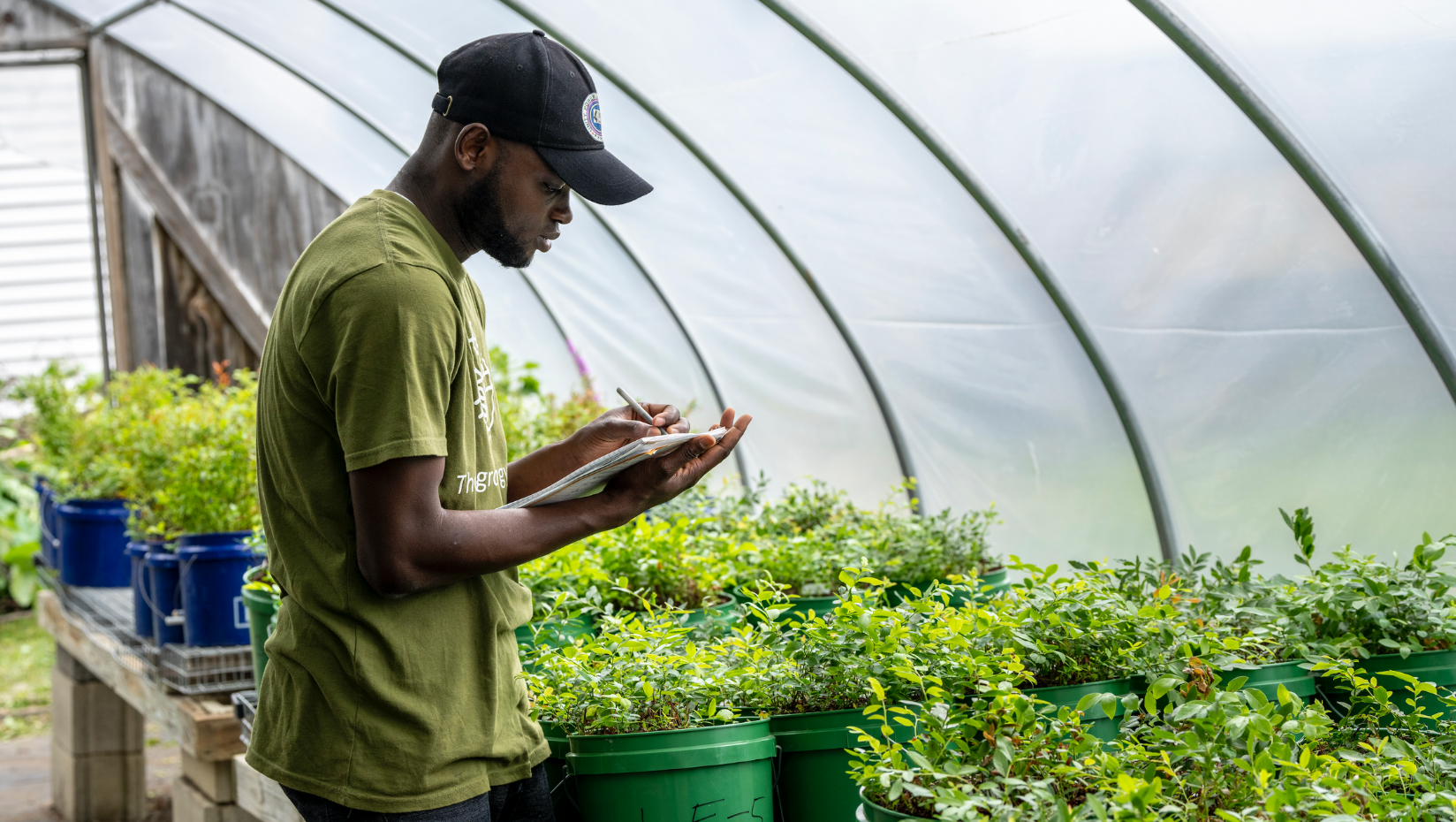
Maine’s Wild Blueberries Production Witnessing a Transformative Era of Innovation and Sustainability
Leveraging 125 years of research, the University of Maine will advance transformative solutions to further strengthen and grow Maine’s wild blueberry industry, thanks to a new $2.9 million award from the U.S. Small Business Administration, secured by Senators Susan Collins and Angus King at the request of the University of Maine System through the FY23 Congressionally Directed Spending process.
The grant, titled “Advancing Research and Extension of Wild Blueberry Production for Changing Markets and Climates,” will be administered through the Maine Agricultural and Forest Experiment Station in the College of Earth, Life, and Health Sciences.
Philip Fanning, an Assistant Professor of Agricultural Entomology at UMaine and a pivotal Wild Blueberry Research Team member, illuminates the uniqueness of wild lowbush blueberries. “Wild or lowbush blueberries, native to North America, are distinct from the varieties now available in the supermarket year round. Research involving pest management, disease control, weed control, and nutrient management has led us to improve crop management and production,” said Fanning “That’s kind of a legacy of the 125 years of research.”
Historically, the cultivation practices of Maine’s wild blueberries have roots in the methods of the Wabanaki people. These practices now encompass a streamlined production system that spans 485 farms across approximately 40,000 acres. This is a significant reduction from the nearly 250,000 acres used in the past. “We’ve been able to increase our production per acre, meaning we are producing more blueberries despite the decrease in utilized land,” Fanning explained. The industry faces a strategic pivot from expansion to efficiency, propelled by UMaine’s groundbreaking wild blueberry research.
The wild blueberry industry, however, faces new challenges, primarily driven by climate change—recent weather patterns, including droughts and wetter springs, impact yields, and pollination. “Our production in Maine was impacted by drought, as the summers of 2021 and 2022 were extremely dry,” Fanning remarks, emphasizing the urgency of UMaine’s research in tackling these issues through sustainable practices and advanced mechanization.
A primary focus of the research is exploring new and more efficient irrigation methods. Fanning stated, “As our predictions of more drought continue, our aquifers and water availability will probably become more scarce.” UMaine plans to develop new water sources as part of its infrastructure investments at Blue Hill Farm. “We’re sinking a new well, and part of that is to test new technologies and more efficient ways of getting the crop irrigated without loss,” Fanning remarked.
When exploring new irrigation techniques, the researchers consider the scalability of the growers in the industry. “We have a lot of large-scale growers that currently irrigate, but we also have a lot of small growers. Some of these irrigation techniques might be a step too far, currently, at least in terms of their investment,” Fanning explained. Ultimately, the research seeks solutions that can work for both small and large-scale growers in Maine, supporting the overall vitality of the industry.
Additionally, the research aims to promote greater mechanization in harvesting this crop. “On the mechanization side of things, we do not harvest our crops as efficiently as possible,” Fanning explained. Fanning highlights the inefficiencies in current methods, such as fruit loss and the labor-intensive nature of manual harvesting. A collaborative effort between UMaine extension and the engineering department is underway to investigate how to reduce harvest time loss and improve efficiency. The mechanization is boosted by purchasing a harvester for Blueberry Hill Farm. “Harvesters to help smaller-scale growers recognize their harvesting potential, overall geared towards better efficiency and harvesting, and better quality of fruit with more profit for growers,” Fanning stated as primary goals for the research.
Further, education plays a crucial role in this project. The goal is to guide farmers towards more profitable practices, such as fresh pack production, which can offer higher returns than frozen produce sales. Community and industry involvement are also critical components of the project’s success. Maine Agricultural and Forest Experiment Station researchers and Extension actively engage with the public through the annual Wild Blueberry Event and open days at Blueberry Hill Farm, offering a glimpse into the progress and scope of the research.
UMaine’s intensive research approach, blending innovative technologies with climate adaptation and community involvement, not only safeguards the cherished tradition of wild blueberry cultivation but also forges a sustainable and prosperous future for Maine’s wild blueberry industry. This initiative is about preserving a crucial part of Maine’s agricultural heritage and adapting it to contemporary challenges, ensuring the wild blueberry’s continued significance in our state’s and nation’s agricultural future.
Contact: research@maine.edu
Written by Karalyn Kutzer
